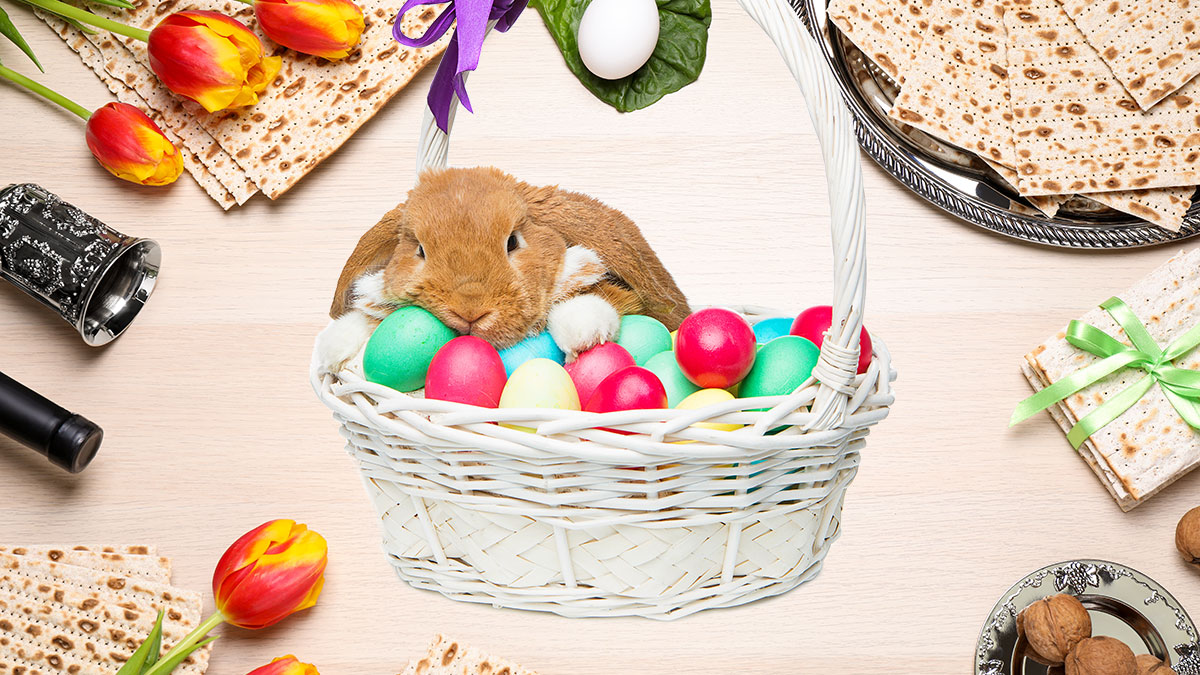Passover and Easter have a lot of similarities, actually, with a couple of important distinctions.
Because we believe in Yeshua (Jesus) as the Messiah, we can celebrate Passover and the Feast of Unleavened Bread with the full understanding of its significance and fulfillment. Passover is the day on which the Messiah was crucified, and after three days and three nights in the ground, he was raised from the dead during the Feast of Unleavened Bread, just in time for the First Fruits offering.
Easter is also the celebration of the resurrection of the Messiah, but over time, this celebration has become intermingled with traditions from outside of the Bible. Traditions involving eggs, bunnies, and ham, to name a few, have nothing to do with the Messiah, his sacrifice, or his resurrection.
Another imperative distinction is the timing of Passover and Easter. We celebrate Passover according to the Biblical calendar, which means it doesn’t always fall on the same day of the week like Easter does. More important is the understanding of the chronology of what happened that week during the year the Messiah was crucified.
Easter falls on the Sunday after Good Friday, which is said to be the day of the crucifixion. However, this leaves it very difficult to count the 3 days and the 3 nights that the Messiah himself said he would be buried. (He called this the sign of his authenticity, so it’s pretty important!) Passover on the year in question was on the equivalent of a Wednesday. That means the Messiah was in the ground Wednesday, Thursday and Friday nights and Thursday, Friday, and Saturday days and was raised at the end of the Sabbath (Saturday) far before sunrise.
There are many significant reasons why this chronology is vital to understand, including very specific ulterior motives of those in power in the early church. (For more information on this read the introduction to The Chronological Gospels.) The simplest explanation for the differences in chronology between the two holidays is those non-Biblical traditions that have seeped into Easter. (For more information, see Truth and Tradition, The Jonah Code, and The Chronological Gospels.)
We do our very best to make sure we are celebrating and remembering what the Bible tells us when we celebrate Passover and the Feast of Unleavened Bread. It is our desire to live out our faith as YHVH asks, as purely and truthfully as we can.
